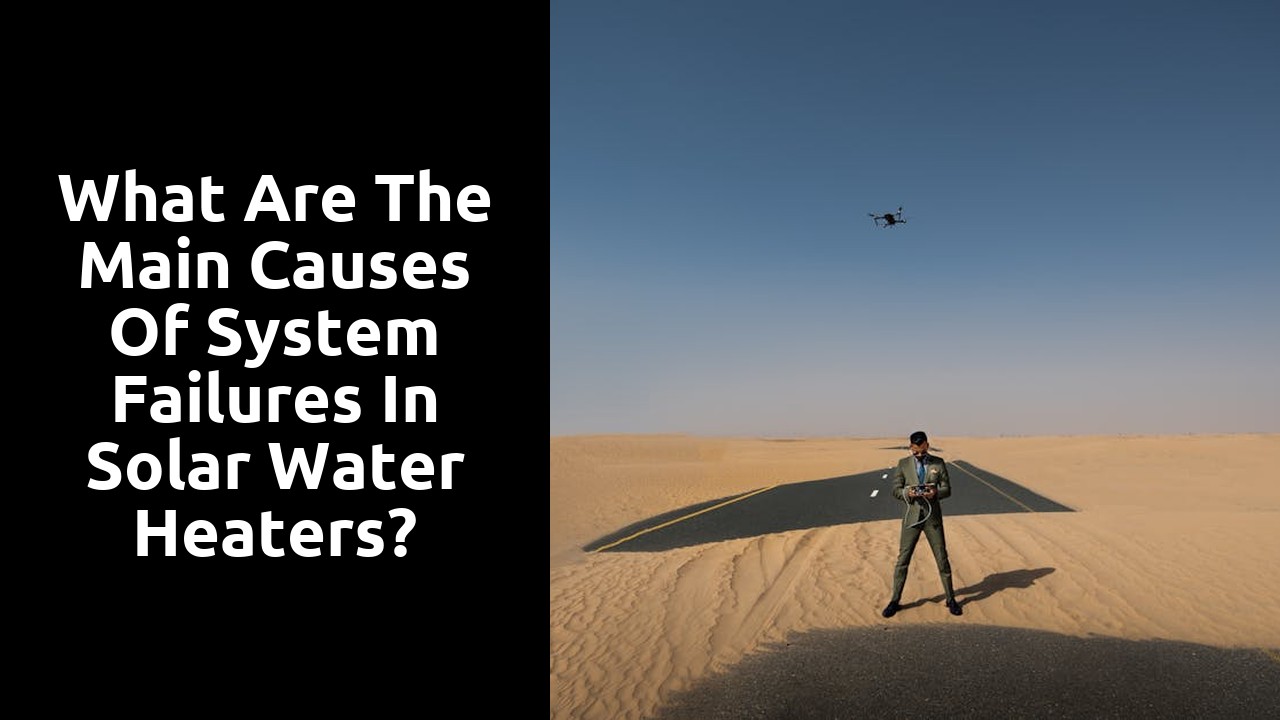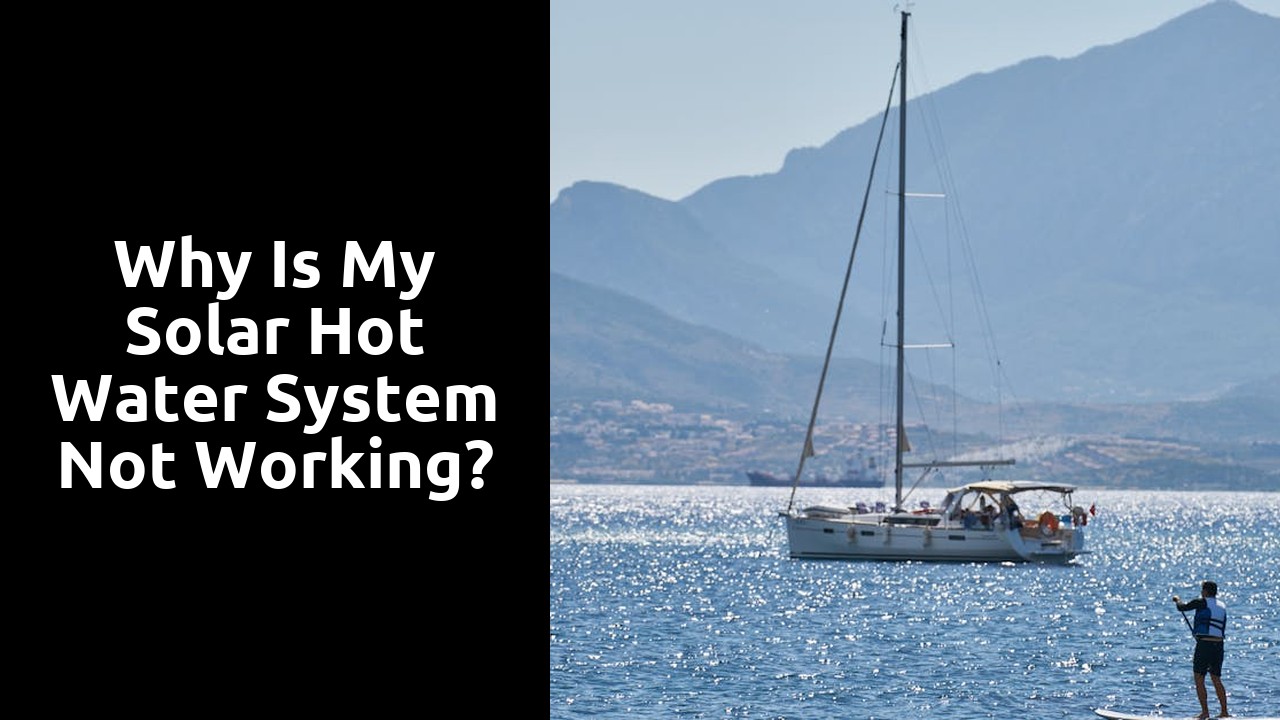
Table Of Contents
Preventive Measures for Maintaining Solar Water Heaters
To ensure the longevity and efficiency of your solar water heater system, regular maintenance and preventive measures are crucial. Adhering to a routine schedule for inspections and servicing can help detect potential issues early on and prevent system failures. Inspecting components such as pipes, insulation, seals, and valves for any signs of wear and tear is essential in maintaining the optimal performance of your solar hot water system. Regular servicing can also help in cleaning and flushing out any debris or sediment that may have accumulated, preventing blockages that could hinder the system's functionality. Combining these measures with proactive steps can significantly reduce the likelihood of encountering problems and the need for extensive Solar Hot Water System Troubleshooting.
Regular Inspections and Servicing
Regular inspections and servicing play a crucial role in ensuring the optimal functioning of solar water heaters. By conducting routine checks, homeowners can identify any potential issues early on and prevent major system failures. It is recommended to schedule professional inspections at least once a year to assess the condition of the system and address any concerns promptly. Solar hot water system troubleshooting should be conducted by trained professionals who can identify and rectify any faults that may arise during the inspection process.
Servicing involves cleaning components, checking for leaks, testing the pressure relief valve, and verifying the overall performance of the system. Additionally, professionals can assess the integrity of the wiring and connections to ensure they are secure and functioning correctly. By adhering to a strict maintenance schedule, homeowners can extend the lifespan of their solar water heater and minimise the risk of unexpected breakdowns. Regular inspections and servicing are essential practices to uphold the efficiency and reliability of solar water heating systems.
Role of Manufacturer Defects in System Failures
When it comes to the performance of solar water heaters, the influence of manufacturer defects on system failures cannot be underestimated. In the realm of Solar Hot Water System Troubleshooting, it is essential to recognise that even a minor flaw in the manufacturing process can lead to significant malfunctions over time. Issues such as faulty wiring, substandard components, or poor workmanship can all contribute to the degradation of a solar water heating system.
Manufacturer defects are particularly concerning as they are often not immediately apparent, lying dormant until they culminate in system failures. In the context of Solar Hot Water System Troubleshooting, it is imperative for consumers to conduct thorough research into the reputation and reliability of manufacturers before investing in a solar water heating system. By being vigilant and proactive in identifying potential defects, consumers can mitigate the risk of system failures and enhance the longevity of their solar water heaters.
Wiring and Component Malfunctions
Wiring and component malfunctions are common culprits leading to system failures in solar water heaters. The complex network of wiring and various components within a solar water heating system can be susceptible to wear and tear over time. Exposure to harsh weather conditions or incorrect installation practices can further exacerbate the issue by causing short circuits or component breakdowns. In some instances, poor quality components may be responsible for system malfunctions, highlighting the importance of utilizing high-quality materials during the installation process. When faced with wiring and component malfunctions, individuals may encounter challenges in identifying the root cause, requiring thorough inspection and troubleshooting to rectify the issue. Solar Hot Water System Troubleshooting becomes crucial in such scenarios to pinpoint the faulty components and restore the system's functionality efficiently.
Environmental Factors Affecting Solar Water Heater Performance
Environmental factors play a significant role in the performance and longevity of solar water heaters. One key factor that can impact the efficiency of these systems is the accumulation of dust and debris. Over time, dust and debris can build up on the solar collectors and other components of the system, reducing their ability to absorb and convert solar energy into heat. This can lead to decreased water heating performance and potentially cause system failures if not addressed promptly. Regular cleaning and maintenance to remove dust and debris buildup are crucial steps in ensuring the optimal functioning of solar hot water systems.
Another environmental factor that can affect solar water heater performance is the quality of sunlight reaching the system. Factors such as shading from nearby buildings or trees, as well as changes in the angle of sunlight throughout the day, can impact the amount of sunlight available to heat the water. Proper installation and positioning of solar collectors, as well as periodic adjustments to ensure maximum exposure to sunlight, can help mitigate these issues. By addressing environmental factors proactively, homeowners can prevent many of the common system failures associated with solar hot water systems and ensure reliable performance over the long term. Solar Hot Water System Troubleshooting.
Effects of Dust and Debris Accumulation
In Solar Hot Water System Troubleshooting, the effects of dust and debris accumulation cannot be overlooked. Australia's arid climate and dusty environments make solar water heaters prone to accumulating dirt, dust, and debris on their surfaces and components. When these foreign particles build up, they can hinder the system's performance by blocking sunlight from reaching the water-carrying tubes or the photovoltaic cells responsible for converting sunlight into usable energy. This blockage leads to decreased efficiency and can ultimately result in system failures if left unaddressed.
Regular cleaning and maintenance are essential to prevent the negative impacts of dust and debris accumulation on solar water heaters. By implementing a routine cleaning schedule, homeowners can ensure that their system operates optimally and efficiently. Moreover, investing in protective measures such as mesh screens or covers for the system's components can help minimise the amount of dust and debris that settles on critical areas, thus prolonging the life and performance of the solar water heater.
FAQS
What are the main causes of system failures in solar water heaters?
The main causes of system failures in solar water heaters can be attributed to factors such as manufacturer defects, wiring and component malfunctions, and environmental factors.
How can regular inspections and servicing help prevent system failures in solar water heaters?
Regular inspections and servicing play a crucial role in identifying any potential issues early on, allowing for timely maintenance and repair to prevent system failures in solar water heaters.
What role do manufacturer defects play in system failures of solar water heaters?
Manufacturer defects can significantly impact the performance and reliability of solar water heaters, leading to system failures if not addressed promptly.
How do wiring and component malfunctions contribute to system failures in solar water heaters?
Wiring and component malfunctions can disrupt the proper functioning of solar water heaters, causing system failures that may require repairs or replacements.
What environmental factors can affect the performance of solar water heaters and lead to system failures?
Environmental factors such as dust and debris accumulation can hinder the efficiency of solar water heaters, potentially resulting in system failures if not mitigated through regular cleaning and maintenance.
